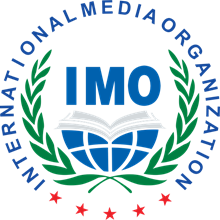On 21 July, four years ago, Mosul, an iconic Iraqi city, was liberated from the shackles of violent extremists, putting an end to 36 months of destruction, fear and death. Early in the year that followed, UNESCO laid out a plan for reconstruction and reconciliation with the objective of bringing this rich and diverse city with its pluralistic history, a crossroads of cultures and religions of the Middle East, back to its former glory. At the Kuwait International Conference for the Reconstruction of Iraq, in February 2018, UNESCO Director-General Audrey Azoulay announced the launch of the Organization’s flagship initiative, “Revive the Spirit of Mosul”.
What does this mean? Revive the spirit of Mosul is a ground-up initiative that aims not only to restore the historic elements of this iconic city but to also reinvigorate the sense of community that among other things includes religious diversity. At one intersection of history and diversity is the work UNESCO undertook to restore and rebuild Al-Nouri Mosque Complex and Al Tahera and Al-Saa’a churches.
Progress has been made on both fronts. In the past year, the architectural competition for the reconstruction of the mosque was completed. A detailed design for the complex is expected later this year.
Meanwhile, the Al-Hadba Minaret is undergoing structural review. It will be restored as it was before 2017, respecting the wishes of Moslawis.
Al Tahera church is undergoing consolidation in preparation for reconstruction later this year. Al-Saa’a church will follow. It is awaiting approval of preliminary design plans from the Dominican Order in Mosul. The timetable of these activities will depend on the ongoing response to COVID-19 in Mosul.
The reconstruction of Al-Nouri Mosque and the two churches is made possible thanks to the generous support of the United Arab Emirates.
UNESCO has also started work in the old city of Mosul restoring parts of its historic urban landscape. It’s another critical initiative that ensures the restoration of spaces, like houses of worship, that were part of the social and cultural life of Moswalis. With the support of the European Union (EU), UNESCO is rehabilitating 44 heritage houses. Another 75 houses will be included in the project’s next phase.
“Revive the Spirit of Mosul” is also about ensuring a safe learning environment for every child. Also with EU support, construction of the new Al-Ekhlas is expected to begin soon. The school will follow UNESCO’s Happy School framework, promoting a culture of peace and reconciliation that starts in the classroom.
In the field of education and training, over 1,000 trainees will be graduating competency based technical and vocational training in construction during the course of the project. They will join on-site work based training rehabilitating historic buildings thanks to EU support.
Over 2,500 5th and 6th graders and their teachers will learn from the tablet/ICT based teaching and learning program with support from Sweden. Similarly, 100,000 learners will benefit from the UNESCO educational program for preventing violent extremism with support from Canada.
With EU support, UNESCO is also working on access to quality primary and secondary education for the community, including addressing the needs of refugees, the displaced and others. This effort aims to create safe and conducive learning environment in schools, strengthening teaching capacity, providing textbooks, learning materials to school age children, improving children’s well-being through psychosocial support and reducing risk to children by raising awareness about leftover ordnance and mines.
With the support of Italy, UNESCO is working to restore the library of the University of Mosul and the establishment of a UNESCO University Chair on Countering Terrorism and Extremism.
Bringing back the cultural and creative industries was the highlight of UNESCO’s efforts to revive cultural life in Mosul this year. With a focus on young artists, this program of capacity building includes support to the city’s rich and diverse musical traditions. This project is made possible thanks to UNESCO’s Heritage Emergency Fund.
In support of visual art UNESCO has created an “Art Space” in Mosul, a sort of hub for capacity building activities and cultural events, with an exhibition space. This is a space where youth can meet, exchange, and flourish. A new program on performing arts and films is scheduled to start in the coming months.
At its heart, “Revive the Spirit of Mosul” is UNESCO’s response for the recovery of Mosul by empowering the population as agents of change involved in the process of rebuilding their city through three main axes: heritage, education and cultural life. It is only possible in close collaboration and consultation with the Iraqi government and people, and with the mobilization of the international community.
In addition to the countries named in this story, this initiative is also made possible thanks to Germany, Japan, Qatar, the Kingdom of Netherlands, and the Government of Flanders.


